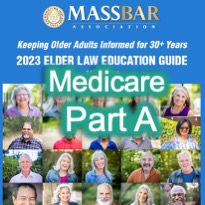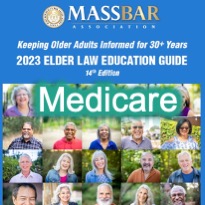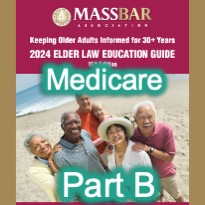Medicare coverage for nursing home care
If a patient has spent 3 days in the hospital, Medicare may pay for care in a Skilled Nursing Facility:
![]() Days 1 – 20: $ zero co pay for each benefit period
Days 1 – 20: $ zero co pay for each benefit period
![]() Days 21 - 100: patient pays coinsurance of $200 per day. This copay will be $204 per day in 2024.
Days 21 - 100: patient pays coinsurance of $200 per day. This copay will be $204 per day in 2024.
![]() Days 101 and beyond: patient pays all costs
Days 101 and beyond: patient pays all costs
 Do you know your rights to nursing home coverage under Medicare? Medicare Part A pays for inpatient hospital care, and then for care in a skilled nursing facility IF the patient has a "qualified" hospital stay of at least 3 days (not counting day of discharge) before being admitted to the skilled nursing facility.
Do you know your rights to nursing home coverage under Medicare? Medicare Part A pays for inpatient hospital care, and then for care in a skilled nursing facility IF the patient has a "qualified" hospital stay of at least 3 days (not counting day of discharge) before being admitted to the skilled nursing facility.
Medicare also pays for home health care, and the amount of reimbursement to home health care agencies depends on whether the patient was admitted to a hospital before returning home. Patients who were put on Observation Status in the hospital end up paying out-of-pocket if they are discharged to a nursing home care:
Elizabeth Barrows explains in this video how Observation Status prevented Medicare payment for her husband's care. On January 25, 2022 a Federal Court ruled that Mrs. Barrows and hundreds of thousands of people who were kept under observation can appeal the Medicare payment denial. A Medicare fact sheet warns patients to ask about their status when they are in the hospital: "You’re an inpatient starting the day you’re formally admitted to the hospital with a doctor’s order. The day before you’re discharged is your last inpatient day."
 Congress voted to require hospitals to tell Medicare patients when they are under observation care and have not been admitted to the hospital. The NOTICE law requires hospitals to provide written notification to patients 24 hours after receivin
Congress voted to require hospitals to tell Medicare patients when they are under observation care and have not been admitted to the hospital. The NOTICE law requires hospitals to provide written notification to patients 24 hours after receivin g observation care, explaining that they have not been admitted to the hospital, the reasons why. The Notice must also disclose the financial implications for cost-sharing in the hospital and the patient's subsequent “eligibility for coverage” in a skilled
nursing facility (SNF).
g observation care, explaining that they have not been admitted to the hospital, the reasons why. The Notice must also disclose the financial implications for cost-sharing in the hospital and the patient's subsequent “eligibility for coverage” in a skilled
nursing facility (SNF).
If you go to the nursing home following a hospital stay, nursing homes are often reluctant to continue billing Medicare, because they think Medicare coverage depends on the beneficiary’s restoration potential; but the standard is whether skilled care is required:
![]() Summary. Even if full recovery or medical improvement is not possible, a patient may need skilled services to prevent further deterioration or preserve current capabilities. The nursing home patient who needs these skilled services should still be covered by Medicare. Fact Sheet.
Summary. Even if full recovery or medical improvement is not possible, a patient may need skilled services to prevent further deterioration or preserve current capabilities. The nursing home patient who needs these skilled services should still be covered by Medicare. Fact Sheet.
The February 16, 2017 statement by Centers for Medicare & Medicaid Services (CMS) explains how: "Skilled nursing services would be covered where such skilled nursing services are necessary to maintain the patient's current condition or prevent or slow further deterioration so long as the beneficiary requires skilled care for the services to be safely and effectively provided."
"Skilled therapy services are covered when an individualized assessment of the patient's clinical condition demonstrates that the specialized judgment, knowledge, and skills of a qualified therapist ("skilled care") are necessary for the performance of a safe and effective maintenance program. Such a maintenance program to maintain the patient's current condition or to prevent or slow further deterioration is covered so long as the beneficiary requires skilled care for the safe and effective performance of the program."


![]() Hospital Observation Status can be financially devastating. Read More by Attorney John L. Roberts at: Agingcare.com "This happened to us last year. After 4 days we were told the status was changing to outpatient." Getting Medicare to pay for skilled nursing home care.
Hospital Observation Status can be financially devastating. Read More by Attorney John L. Roberts at: Agingcare.com "This happened to us last year. After 4 days we were told the status was changing to outpatient." Getting Medicare to pay for skilled nursing home care.
Next Page: Medication Management: Preventing Polypharmacy, Maximizing Medicare Part D, and Finding Alternative Payment Sources